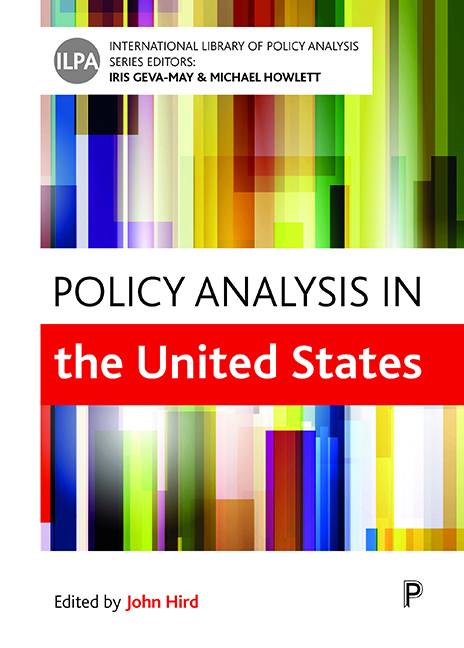Book contents
- Frontmatter
- Contents
- List of tables and figures
- Notes on contributors
- Editors’ introduction to the series
- Introduction
- Part One History, styles, and methods of policy analysis in the United States
- Part Two Policy analysis by governments
- Part Three Policy analysis outside of government
- Part Four Policy analysis education and impact internationally
- Index
Introduction
Published online by Cambridge University Press: 12 April 2022
- Frontmatter
- Contents
- List of tables and figures
- Notes on contributors
- Editors’ introduction to the series
- Introduction
- Part One History, styles, and methods of policy analysis in the United States
- Part Two Policy analysis by governments
- Part Three Policy analysis outside of government
- Part Four Policy analysis education and impact internationally
- Index
Summary
Policy analysis traverses and aims to bridge the space between truth and power. Indeed, policy analysts are trained to be in a position to ‘speak truth to power.’ With its political origins in the United States during the progressive era, the operational origins of policy analysis occurred in the 1950s when both truth and power were more clearly defined and when those in power presumably were interested in truth. Policy analysis emerged from systems analysis, which was applied successfully to clearly delineated problems with unambiguous objective functions. The success of systems analysis and related methods gave rise to an early technocratic orientation to policy analysis, extrapolating from relatively straightforward problems to the belief that complex systems, such as the U.S. economy, could be fine-tuned through appropriate government intervention guided by analysis. Good policy outcomes would follow if only ‘the best and the brightest’ wielded the right tools. The country did not go to war, including the ‘war on poverty,’ without thinking it would win, and a belief in analysis bolstered that view.
This volume engages leading U.S. public policy scholars describing changes in policy analysis in the United States over time and in various sectors as well as projecting its future. Representing the U.S. portion of an international series on policy analysis, the first four chapters provide an overview of policy analysis and the profession in the United States in historical, philosophical and, in one instance, personal terms. The next four chapters focus on policy analysis in government, including federal, state, and local, as well as in the U.S. Congress. The following seven chapters outline policy analysis outside of government, involving public opinion, corporations and trade associations, the media, political parties, and so on. The final three chapters focus on public policy education, the role of graduate programs in public policy, and the influence of the United States on the international experience with policy analysis. As the concluding chapter by Guy Peters notes, the formal recognition of policy analysis as a field and profession began in the United States, though it has improved through international exposure and is now arguably more influential in other parts of the world.
The Vietnam war, ‘stagflation,’ the war on poverty, and Watergate diminished confidence in government and served to remind citizens and policymakers that expertise was insufficient to solve complex public problems.
- Type
- Chapter
- Information
- Policy Analysis in the United States , pp. 1 - 6Publisher: Bristol University PressPrint publication year: 2018



